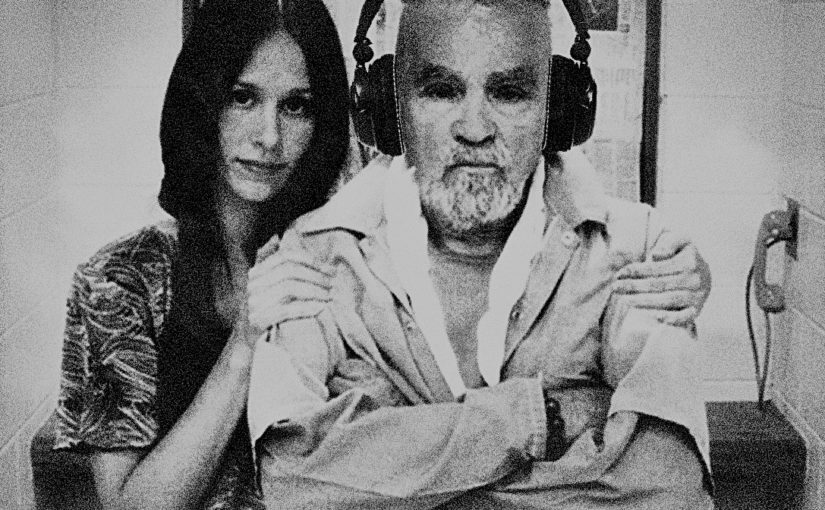CALEB LAUDE | Graphic
After Charles Manson died in prison many, many Twitter users celebrated his demise. Other folks, including System of a Down guitarist Daron Malakian, mourned the departed cult leader. Malakian cited Manson as one of his artistic influences and added that he was “very sad” to hear the news.
Nearly 50 years have passed since Charles Manson’s acid-fueled followers terrorized Los Angeles and committed nine gruesome murders. Yet, people still warm up to the guy. The internet is littered with people who defend Manson and downplay his role in the murders. I imagine these people either watch heaps of Manson television interviews, or they listen to his music.
In interviews, Manson is senseless and rambling, two unattractive personality traits in anybody —regardless of their criminal convictions. Manson’s music, however, is surprising. Manson’s tunes have been covered by Guns N’ Roses, Rob Zombie and The Beach Boys.
“Lie: The Love and Terror Cult” is Charles Manson’s only real studio album. It was released March 6, 1970, which was seven months after the Manson Family murders, but a year before Manson was convicted for ordering the crimes. “Lie” includes 14 songs, all written by Manson, and runs just under 32 minutes long. The cover is a near identical reproduction of the famous Dec. 19, 1969 cover of Life magazine, minus an “F.”
The music of “Lie” is raw-to-the-bone hippie folk rock. Generally, Manson sings loud and high like Davey Jones against a backdrop of loose and messy guitar chords. Manson moderately dabbles in styles throughout. He injects some pop into “Look at Your Game, Girl” and “Home is Where You’re Happy” and a little fringe rockabilly in “Arkansas.”
Manson’s lyrics are straightforward and blunt. In “Garbage Dump,” which is Manson’s middle finger to our collective partiality for pollution, he sings, “You could feed the world with a garbage dump.” Little bits of truth like that are peppered in throughout. I imagine moments like that soften Manson’s image for some people.
It becomes obvious when listening to “Lie” how Manson was able to assemble such a large collection of followers and exert the control over them that he did. One cannot help but be swept up in Manson’s charisma and his often defiant lyrics. Freedom and love, not mind control or hate, seem to be the biggest themes.
Yet, there is inescapable anxiety on this record. Perhaps it is the knowledge of the brutal murders that amplifies the few unusual instances on “Lie.” It may help that the Manson Family does not play a huge role in “Lie.” Most of the time they mill around in the background. Their big moment on “Lie” is “Never Say Never to Always.” This is a short, shudder-inducing song where the ladies of the Manson Family perform a cappella. Moments like this are reminders that the man who orchestrated this album was not entirely well in the head. “Never Say Never to Always” belongs in a horror movie.
I imagine Manson could have amounted to something in music. Songs such as “Look at Your Game Girl” and “Sick City” show Manson could sing. Manson spends most of “Lie” playing his guitar as fast as possible, but when he slows down you realize that he could play too. Also, Manson — a man who convinced hippies to murder people — had heaps of charisma. Manson’s raw energy and talent could have been molded into something good by a competent producer.
Yet, after listening to this album, I still do not understand Daron Malakain’s affection for Charles Manson. There is decent music on “Lie,” but nothing is genius. There is nothing here that compels me to mourn publicly for a murder conspirator.
